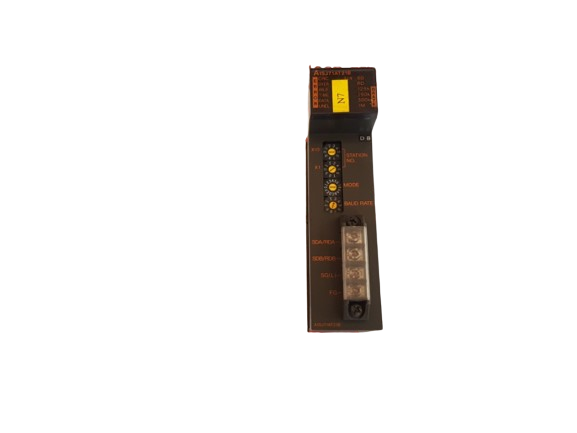Programmable Logic Controllers (PLCs) play a very important role in industrial automation. These flexible devices have transformed the way industries manage and control processes. Hence, they are crucial parts of modern production conditions. This blog will explain some important roles that PLC plays in industrial automation, its function, and contribution it makes towards automation systems.
What is a PLC?

A Programmable Logic Controller is an industrial computer designed for automation of industrial processes, such as controlling machinery on factory assembly lines, amusement rides, or other automated processes. Unlike consumer-oriented computers, Industrial PLCs module are designed to operate reliably in harsh environments and to operate machinery and processes with a great deal of efficiency.
How PLC Work in Industrial Automation
The ability to execute a pre-programmed sequence of operations is at the core of PLCs. These devices supervise and regulate processes with the help of hardware and software. Well, this is basically how the PLCs work in an industrial automation:
- Analog/Digital Input: PLCs are given input provided by the sensors and other devices. The inputs can be provided as a digital input, which can be either on or off, or analog, showing different levels. A temperature sensor would send information about process temperature to a PLC.
- Program Execution: Once a PLC receives an input, it processes these signals per a pre-programmed set of instructions. This is the program that contains the details in PLC programming languages, instructing the PLC how it should react upon receipt of different inputs.
- Control of Output: After processing the inputs, the PLC will send out commands to actuators or other devices for certain actions. In other words, if a temperature sensor indicates that a machine is overheating, a PLC may send a command to trigger a cooling system.
- Communication: PLCs may also be able to communicate with other devices and systems, including SCADA (Supervisory Control and Data Acquisition) systems, in more extended control and monitoring areas.
The Importance of PLCs in Industrial Automation
PLCs are essential in industrial automation for several reasons: PLCs are designed to operate dependably in harsh environments. They are designed to operate under extreme temperatures, vibrations, and electrical noise; thus, PLCs can be applied in almost any industry.
- Flexibility: The possibility to program PLCs for applications ranging from simple to complex provides flexibility in controlling processes or machinery of various natures. This is very important in industries that tend to change processes quite frequently.
- Real Time Processing: PLCs process information in real-time to ensure that systems and processes are accurately controlled in time. This, in fact, becomes quite necessary when one intends to ensure efficiency and safety within automated systems.
- Integration with Other Systems: PLCs can be incorporated into other automation systems, including SCADA and HMIs. It would, therefore, be easy on this count to ensure centralized command and control of activities while offering the operators with close insight into the performance of the operating system.
Types of PLCs
Understanding the different types of PLCs will be helpful in the selection of the correct type for a particular application. Following are some of the common types:
- Compact PLCs: These are for small to medium applications. It integrates the CPU, I / O modules, and power supply into one unit.
- Modular PLCs: They offer flexibility to the user, such that one can add removal modules according to their needs. They find their application in larger and more complex applications.
- Rack-mounted PLCs: These are applied in very large systems and they are mounted on a rack. They have extensive I/O capabilities and are fitted for large-scale automation in industry.
The Future of PLCs
As Industry continues to evolve, the role of PLCs is also changing. The future of PLCs includes advancements such as:
- Integration with IoT: PLCs are increasingly being integrated with the Internet of Things (IoT), allowing for remote monitoring and control. This integration provides greater flexibility and efficiency in managing industrial processes.
- Increased Connectivity: Modern PLCs are equipped with advanced communication protocols, improving their ability to interface with other systems and devices. This enhanced connectivity supports more automation systems.
- Increased Processing Power: Future PLCs will likely feature more powerful processors, enabling them to handle more complex tasks and processes. This will enhance their capabilities in process control and PLC automation.
PLCs are a foundation of industrial automation because they offer reliability, flexibility, and real-time processing. In addition, their interfacing capability with other systems like SCADA systems and HMI systems has made them irreplaceable in industrial automation. The concept of PLC technology ranges in simplicity from small-scale PLC devices to complex ones performing a large number of functions, various programming languages in which PLCs can be programmed, and so on. PLC devices can be utilized effectively by industries, thus allowing the industries to increase their operational outputs. As industry continues to advance, so will PLCs-finding more capability and innovative opportunities for automation in industries.
Browse our selection of Programmable Logic Controllers (PLCs) to enhance your automation processes.





Validate your login
Sign In
Create New Account